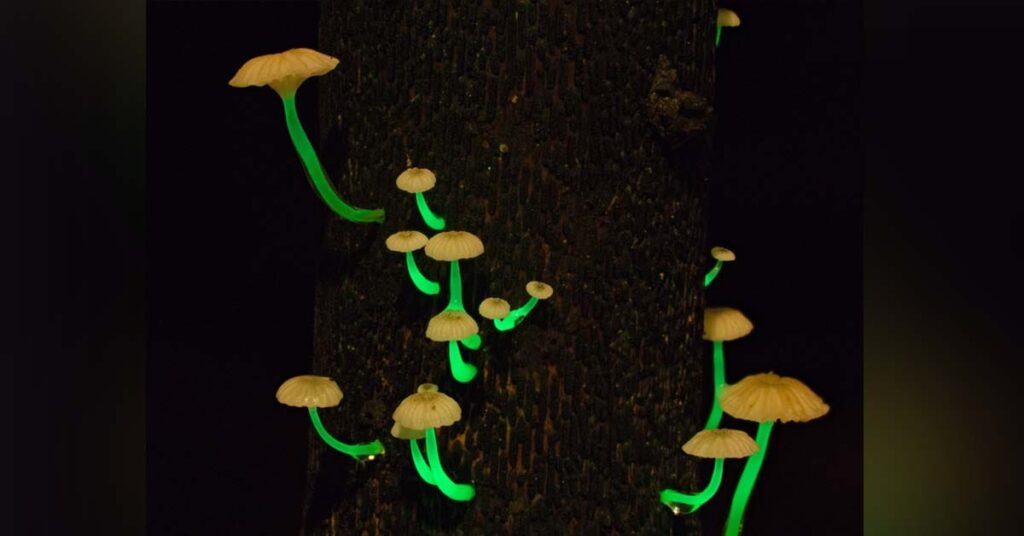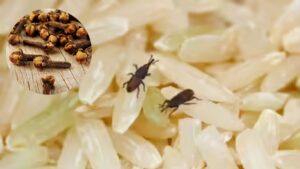Scientists Discover Rare Bioluminescent Mushrooms in Kasaragod, Warn Against Consumption

Scientists Discover Rare Bioluminescent Mushrooms in Kasaragod, Warn Against Consumption
The fascinating Filoboletus manipularis adds to fungal biodiversity but poses health risks if ingested.
In the dense forests of Kasaragod, researchers have uncovered a rare species of bioluminescent mushrooms that emit a brilliant green light in the dark. This remarkable discovery, documented by a news agency, was made during a micro-fungal survey conducted by the Kasaragod division of the Kerala Forest and Wildlife Department in collaboration with the Mushrooms of India Community.
The newly identified species, Filoboletus manipularis, is known for its unique ability to produce light through a biochemical process involving luciferin, luciferase, and oxygen. This bioluminescence is thought to attract insects, aiding in the dispersion of the mushroom’s spores.
The survey team, which included Kasaragod Divisional Forest Officer K. Ashraf, Dr. Jinu Muraleedharan, Dr. Santhosh Kumar Kookal, KM Anoop, Sachin Pai, and Poorna Sajna, found over 50 different mushroom species during their exploration. However, the discovery of the glowing Filoboletus manipularis stands out as a significant find.
Botany experts from Sikkim highlighted the ecological and scientific importance of this discovery. He explained that these mushrooms thrive in tropical, humid environments with abundant decaying organic matter, such as fallen trees and leaves. The expert emphasized that the glowing mechanism, while enchanting, also plays a critical role in the ecosystem by breaking down organic matter and attracting insects for spore dispersion.
Despite their mesmerizing appearance, scientists strongly advise against consuming these mushrooms. Experts warned that many wild mushrooms contain toxins, and the chemicals responsible for bioluminescence could be harmful, leading to severe gastrointestinal issues or worse if ingested. Until further research is conducted, these mushrooms should be admired for their beauty rather than considered as a food source.
The discovery of Filoboletus manipularis not only contributes to our understanding of fungal biodiversity but also opens new avenues for scientific research. By studying their genetic makeup, scientists hope to gain insights into bioluminescence and potentially uncover new species, enhancing our knowledge of fungal ecosystems.









